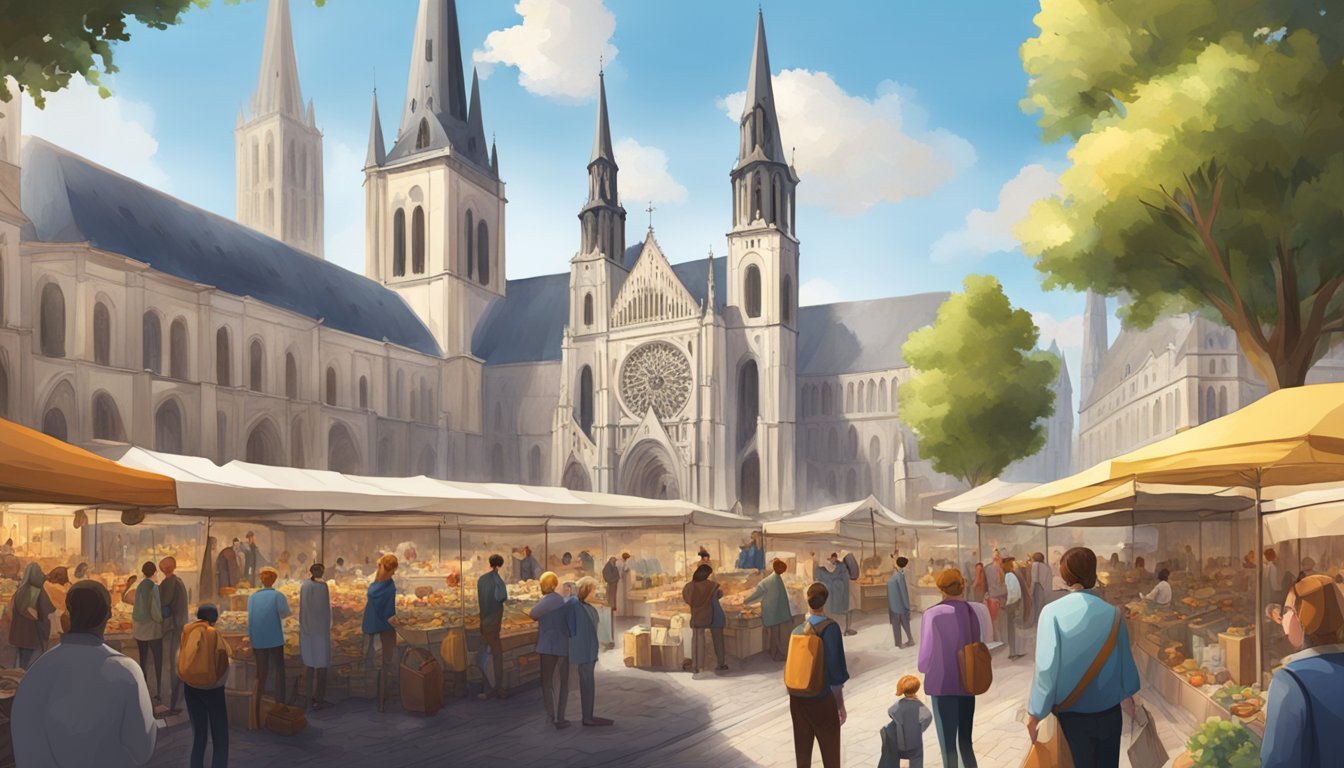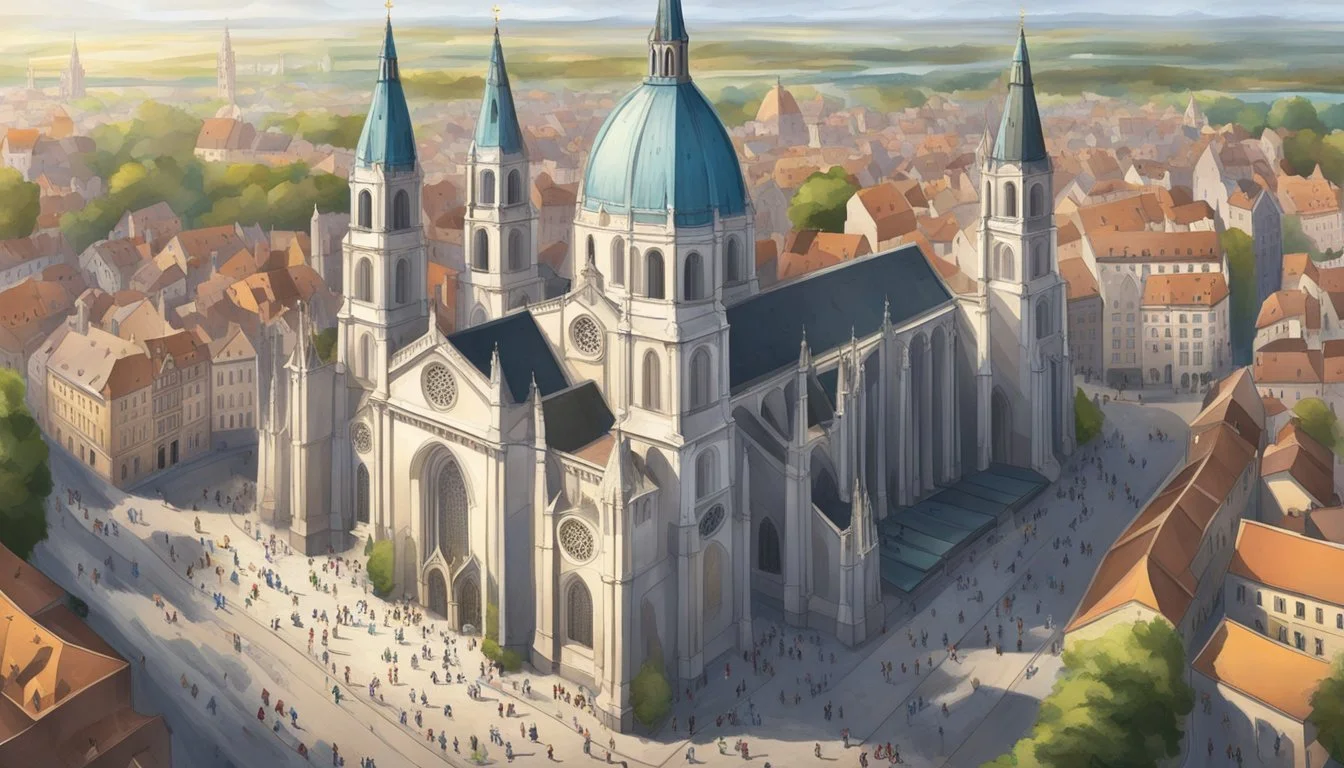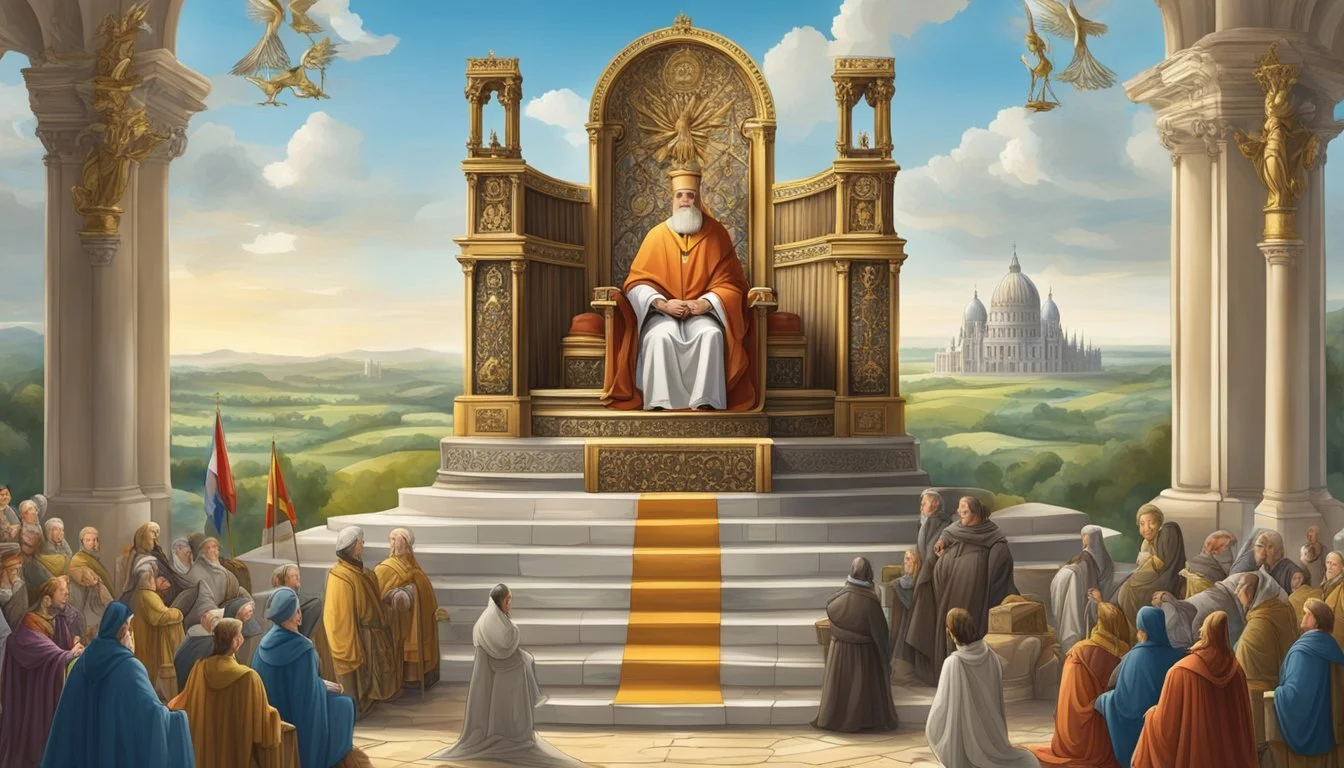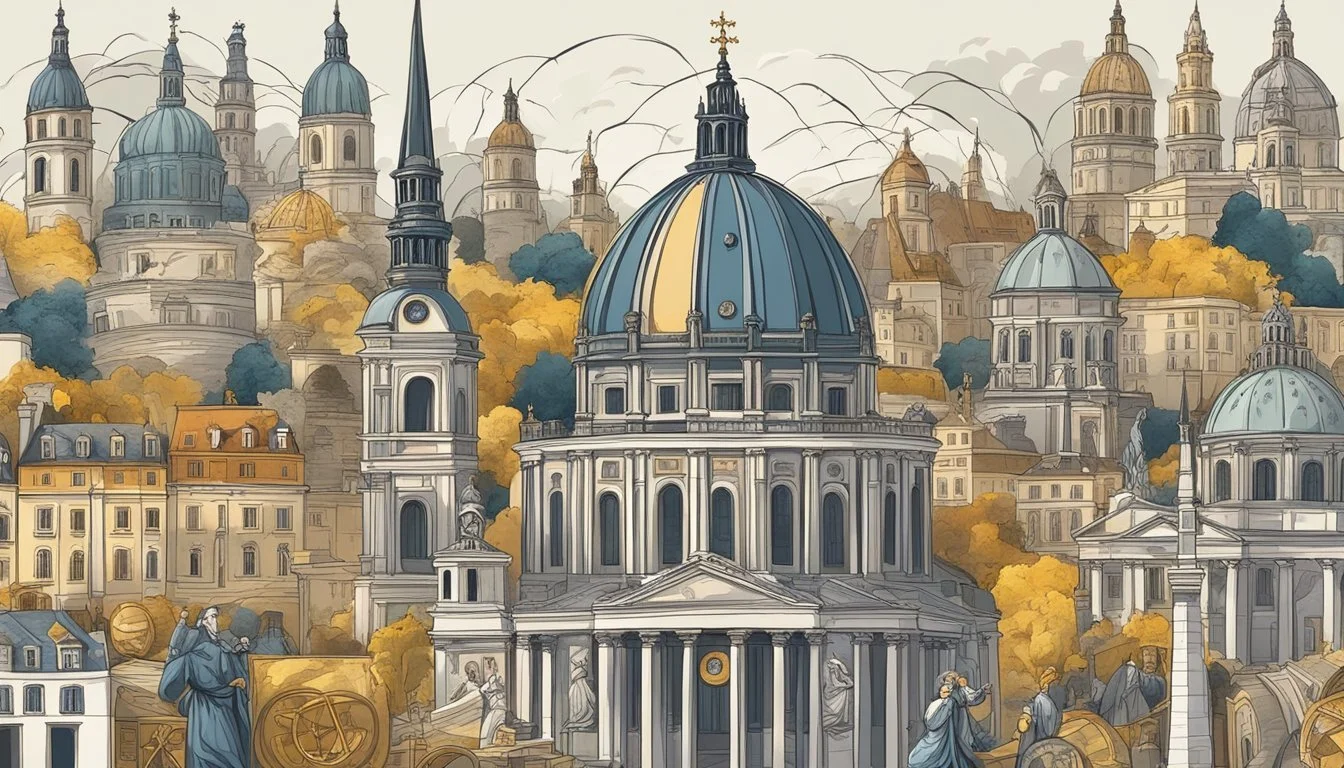9 Films Analyzing the Impact of the Reformation on European Politics
A Cinematic Exploration of Religious Upheaval and Political Change
The Protestant Reformation of the 16th century reshaped the religious and political landscape of Europe. This monumental movement, sparked by Martin Luther's critiques of the Catholic Church, had far-reaching consequences that extended beyond theology into the realm of governance and statecraft. The Reformation challenged existing power structures and led to significant shifts in the relationship between church and state across the continent.
Films have provided a powerful medium for exploring and analyzing the complex interplay between the Reformation and European politics. Through dramatic portrayals and historical recreations, cinema has brought this pivotal period to life for modern audiences. These films offer insights into the political maneuverings, power struggles, and social changes that accompanied the spread of Protestant ideas throughout Europe.
1) Luther
"Luther: The Life and Legacy of the German Reformer" is a compelling documentary that explores the profound impact of Martin Luther on European politics during the Reformation. The film skillfully combines live-action storytelling with artistic animation to depict Luther's daring life and revolutionary ideas.
This documentary delves into Luther's challenge to the medieval church's authority over secular rulers and society. It highlights his advocacy for the separation of church and state, a concept that significantly influenced political thought in Europe.
The film presents Luther's role in sparking the Protestant Reformation, which reshaped the political landscape of Europe. It examines how his ideas on religious freedom and individual conscience affected governance structures and power dynamics.
While some scholars may critique its evangelical perspective, the documentary offers a well-executed historical narrative. It provides viewers with a clear understanding of Luther's theological arguments and their far-reaching political implications.
By focusing on Luther's life and teachings, the film illustrates how religious ideas can drive significant political change. It serves as an informative resource for those interested in the intersection of religion and politics during this pivotal period in European history.
2) The Reformation: This Changed Everything
"The Reformation: This Changed Everything" is a comprehensive documentary series that explores the profound impact of the Protestant Reformation. This three-hour program delves into the events and people that shaped this pivotal period in history.
The series features commentary from over twenty scholars and clergy representing both Roman Catholic and Protestant perspectives. Notable contributors include Dr. Michael Horton and Dr. Frank James, providing diverse insights into the Reformation's effects.
This documentary examines how Martin Luther's actions in 1517 sparked widespread religious and social transformations across Europe. It explores the far-reaching consequences of Protestant principles on political ideologies, family structures, and societal norms.
The program is designed to engage viewers in discussions about core Christian truths. It encourages critical thinking about the Reformation's lasting influence on Christianity and Western civilization.
An interactive 14-lesson curriculum accompanies the series, making it a valuable educational resource. This additional material allows for deeper exploration of the topics presented in the documentary.
3) A Man For All Seasons
A Man For All Seasons, directed by Fred Zinnemann in 1966, depicts the conflict between Sir Thomas More and King Henry VIII during the English Reformation. The film explores the political and religious tensions of 16th century England.
Based on Robert Bolt's play, the movie portrays More's unwavering commitment to his Catholic faith in the face of mounting pressure from the king. It highlights the complex interplay between personal conscience and political loyalty.
The film examines how Henry VIII's desire for a male heir led to a seismic shift in England's religious landscape. It showcases the far-reaching consequences of the king's break with the Catholic Church and the establishment of the Church of England.
Through More's principled stand, the movie illustrates the impact of the Reformation on individuals caught between competing allegiances. It presents a nuanced view of the political maneuvering and moral dilemmas faced by key figures during this tumultuous period.
A Man For All Seasons offers a compelling look at how the Reformation reshaped power dynamics in Tudor England. It demonstrates the profound influence of religious changes on European politics and governance.
4) God's Outlaw: The Story of William Tyndale
God's Outlaw (1986) portrays the life of William Tyndale, a pivotal figure in the Protestant Reformation. The film depicts Tyndale's struggle to translate the Bible into English during the 16th century.
Directed by Tony Tew, the biographical drama stars Roger Rees as Tyndale. It explores the political and religious tensions of Tudor England under King Henry VIII's reign.
The movie highlights Tyndale's conviction that common people should be able to read the Bible in their native language. This belief put him at odds with the Catholic Church and powerful figures like Sir Thomas More.
God's Outlaw showcases the dangers Tyndale faced in his mission. It depicts his exile, pursuit by authorities, and ultimate betrayal. The film illustrates how Tyndale's work influenced the spread of Reformation ideas.
Through Tyndale's story, the movie examines broader themes of religious freedom, state power, and the impact of accessible scripture. It provides insight into the political and social upheaval caused by the Reformation in Europe.
5) The Radicals
The Reformation era saw the rise of radical Protestant groups that pushed for more extreme religious and social changes. These radicals went beyond the reforms advocated by mainstream Protestant leaders like Martin Luther and John Calvin.
Anabaptists were among the most prominent radical groups. They rejected infant baptism and advocated for adult baptism of believers. This stance put them at odds with both Catholic and mainstream Protestant authorities.
Some radical reformers, like Thomas Müntzer, blended religious fervor with revolutionary politics. Müntzer led peasant revolts against feudal lords, seeking to establish a theocratic communist society.
The Radical Reformation produced diverse sects and movements. Groups like the Hutterites practiced communal living and pacifism. Others, such as the Mennonites, emphasized nonviolence and separation from worldly affairs.
Radical ideas threatened the social and political order of 16th century Europe. Both Catholic and Protestant rulers often persecuted radical groups, viewing them as dangerous heretics and potential revolutionaries.
The legacy of radical reformers influenced later religious movements and political ideologies. Their emphasis on individual conscience and social reform resonated through subsequent centuries.
6) Zwingli
Ulrich Zwingli, a key figure in the Swiss Reformation, is the subject of the 2019 film "The Reformer: Zwingli - A Life's Portrait." This biographical drama depicts Zwingli's arrival in Zurich in 1519 and his subsequent efforts to reform the Catholic Church.
The film explores Zwingli's impact on Swiss society and politics, showcasing his challenge to established religious practices and his advocacy for a return to Scripture-based faith. It portrays his debates with Catholic authorities and his influence on Zurich's city council.
Zwingli's reforms extended beyond theology to social and political spheres. The movie illustrates how his ideas shaped local governance and community life in Zurich, reflecting the broader impact of the Reformation on European politics.
The film also touches on Zwingli's personal life, including his relationship with Anna Reinhart, providing insight into the human side of this influential reformer. Through its narrative, the movie offers viewers a glimpse into the complex interplay between religious reform and political change in 16th-century Switzerland.
7) The New World
The Reformation's impact extended beyond Europe to the newly discovered Americas. Protestant explorers and settlers brought their religious beliefs to the New World, shaping colonial societies and politics.
England's Protestant shift under Henry VIII influenced its colonial ambitions. English settlers established Protestant colonies along the Atlantic coast, laying the groundwork for future religious diversity in North America.
The Catholic powers of Spain and Portugal also expanded their empires, driven partly by a desire to spread Catholicism. This led to competition between Protestant and Catholic nations for territory and resources in the Americas.
Religious motivations often intertwined with political and economic goals in colonization efforts. Some groups, like the Puritans, sought to create societies based on their interpretations of Protestant ideals.
The Reformation's emphasis on individual Bible reading and interpretation found fertile ground in the New World. This contributed to the development of unique religious movements and denominations in colonial societies.
As European powers vied for control in the Americas, religious differences often fueled conflicts and alliances. The complex interplay of faith and politics in the New World echoed the tensions that had reshaped Europe during the Reformation era.
8) The Gospel According to Luther
"The Gospel According to Luther" is a 2008 film that examines Martin Luther's theological contributions to the Protestant Reformation. The movie delves into Luther's core beliefs, particularly his emphasis on salvation by faith alone.
The film explores Luther's struggle with the Catholic Church's practice of selling indulgences. It highlights his conviction that salvation comes through God's grace, not through works or monetary payments.
Luther's translation of the Bible into German is a key focus of the film. This act made Scripture accessible to common people, challenging the Church's monopoly on biblical interpretation.
The movie depicts Luther's confrontations with Church authorities, including his famous stand at the Diet of Worms. It showcases his unwavering commitment to his beliefs despite facing excommunication and potential execution.
"The Gospel According to Luther" also touches on the broader political implications of Luther's teachings. It illustrates how his ideas spread rapidly, reshaping the religious and political landscape of Europe.
9) Queen of Scots
The 2018 film "Mary Queen of Scots" explores the tumultuous relationship between Mary Stuart and Elizabeth I during the Protestant Reformation. It depicts the political and religious tensions that shaped 16th-century Britain.
Mary Stuart, a Catholic monarch, faces opposition from Protestant nobles in Scotland. The film portrays her struggles to maintain power in a increasingly Protestant realm.
Elizabeth I of England is shown grappling with the threat Mary poses to her throne. The movie highlights the complex dynamics between the two queens as they navigate political alliances and religious conflicts.
The Reformation's impact on European politics is evident throughout the narrative. It shapes the power struggles, diplomatic relations, and personal choices of both monarchs.
The film illustrates how religious differences fueled political rivalries and shaped national identities during this period. It offers a glimpse into the challenges faced by Catholic rulers in Protestant-dominated regions.
Through its portrayal of Mary Stuart's life, the movie examines the intersection of religion, politics, and gender in Reformation-era Europe. It showcases the far-reaching consequences of religious reform on monarchical power and succession.
Historical Context of the Reformation
The Protestant Reformation emerged in 16th century Europe as a response to perceived corruption and doctrinal issues within the Roman Catholic Church. This religious movement reshaped the spiritual and political landscape of Europe.
Causes of the Reformation
The sale of indulgences by the Catholic Church sparked widespread criticism. Many saw this practice as exploiting people's faith for financial gain. The Church's immense wealth and political power also drew scrutiny from reformers.
Increased literacy and the invention of the printing press allowed reformers' ideas to spread rapidly. This technological advancement enabled wider access to religious texts and critique of Church practices.
Humanist scholars promoted a return to original biblical sources. Their work highlighted discrepancies between Church teachings and scripture, fueling calls for reform.
Key Figures and Their Influence
Martin Luther, an Augustinian monk, played a central role in initiating the Reformation. His 95 Theses, posted in 1517, challenged the Church's authority and practices. Luther's writings, including his German translation of the Bible, shaped Protestant theology.
John Calvin developed a distinct Protestant theology in Geneva. His ideas on predestination and church governance influenced many reform movements across Europe.
King Henry VIII of England broke from the Catholic Church, establishing the Church of England. This act had far-reaching political consequences, altering the balance of power in Europe.
Ulrich Zwingli led reform efforts in Zurich, emphasizing simplicity in worship and rejecting Catholic rituals. His work laid the foundation for the Reformed tradition.
Political Shifts in Europe
The Reformation catalyzed profound changes in European political structures and governance. It redefined the relationship between church and state, accelerated the formation of nation-states, and reshaped power dynamics across the continent.
Rise of Nation-States
The Reformation weakened the Catholic Church's authority, allowing secular rulers to consolidate power. This shift led to the emergence of stronger, more centralized nation-states. In England, Henry VIII's break with Rome in 1534 exemplified this trend, as he declared himself head of the Church of England.
Protestant rulers in German principalities gained autonomy from the Holy Roman Empire. The Peace of Augsburg in 1555 granted princes the right to choose their territory's official religion, further solidifying their control.
France, despite remaining Catholic, saw increased royal power as the monarchy capitalized on religious conflicts to strengthen its position.
Changes in Governance and Power Structures
The Reformation altered traditional power structures across Europe. In many areas, the Catholic Church's vast landholdings and political influence diminished. This created opportunities for new elites to rise and reshape governance.
In Protestant regions, the confiscation of church properties provided rulers with new resources. These assets were often used to fund state-building initiatives and reward loyal supporters.
Representative bodies gained prominence in some areas. The Dutch Republic, born out of the Protestant revolt against Spanish rule, established a unique federal structure with significant power vested in provincial assemblies.
Lutheran ideas about the "two kingdoms" doctrine influenced political thought, promoting a separation between spiritual and temporal authority. This concept laid groundwork for future notions of secularism in governance.




